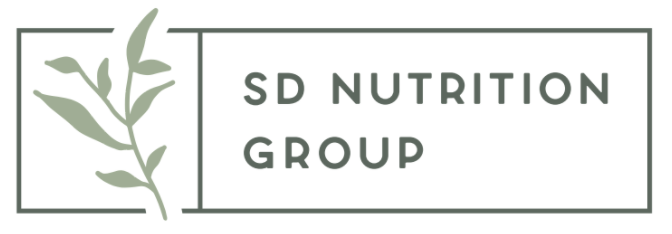All About Caffeine
I love my morning cup of coffee. I enjoy the daily routine of putting on the pot of coffee to brew, the smell it makes as I get ready for the day, and definitely the boost of energy it gives me that helps me feel more alert and ready to take on the day. I’m sure many people would agree with me! But part of having a healthy relationship with food and taking care of your body is also addressing your relationship with caffeine.
There’s no doubt that caffeine, particularly coffee, is a normalized part of our culture and for many of us, our day to day lives. Let’s take a closer look at what caffeine is and does in the body. Caffeine is a stimulant substance that naturally occurs in more than 60 plants, including coffee beans, tea leaves, kola nuts (used to flavor soft drinks like colas), and cacao pods (used to make chocolate products). There is also synthetic caffeine, which is added to things like energy drinks and some pain relievers and cold medicines. The amount of caffeine in drinks can vary quite a bit, but here’s an idea of the caffeine content of common drinks:
An 8-ounce cup of coffee: 95-200 mg
A 12-ounce can of cola: 35-45 mg
An 8-ounce energy drink: 70-100 mg
An 8-ounce cup of tea: 14-60 mg
A 12-ounce cup of decaf coffee: ~5mg
Up to 400mg per day of caffeine is considered safe for most adults. However, each person’s sensitivity to caffeine is different. You might be more sensitive to caffeine if even a small amount makes you jittery, restless, anxious, or causes sleep problems. Some people may need to limit or avoid caffeine for health reasons or medical conditions, such as women who are pregnant or breastfeeding, those who have high blood pressure, or are taking certain medications. The American Academy of Pediatrics discourages consumption of caffeine and other stimulants by children and adolescents. Always talk to your doctor or healthcare provider if you’re concerned about the effects of caffeine for you individually.
Caffeine and Disordered Eating
While caffeine can be consumed safely in moderation as a part of normal eating, it is unfortunately very commonly used as part of disordered eating/eating disorder behaviors. Caffeine is said to speed up metabolism, thus supposedly leading to weight loss. There is NO conclusive evidence that caffeine consumption leads to weight loss, but health magazines, fitness influencers, and advertisements continue to hype the “fat burning” power of caffeine. This is diet culture messaging that is harmful and not based in fact.
Caffeine temporarily suppresses appetite, and coffee and energy drinks are frequently used as a tool for restriction. Running out of the door in the morning with only a coffee in hand is not breakfast! Not only does this deprive your body of calories (real energy!) and nutrients it needs, but it also ultimately leads to a caffeine “crash”, fatigue, and cravings for carbohydrates as your body seeks out much-needed energy and fuel. This can lead to overeating or binging later on.
Those who suffer from eating disorders often have co-occurring conditions such as anxiety and digestion issues, and caffeine can worsen these symptoms. Caffeine can have a laxative effect and can irritate stomach ulcers and GERD symptoms. And for those already struggling to reconnect with hunger cues, caffeine can suppress appetite, making noticing hunger more difficult and increasing the feeling of uncomfortable fullness. Caffeine also activates the body’s stress response releasing the stress hormones adrenaline and cortisol, increasing heart rate and causing the jitters, all of which can increase feelings of anxiety and stress. Excessive caffeine combined with increased anxiety is bad news for quality sleep. This can quickly lead to a cycle of poor sleep—>caffeine to fight exhaustion—>poor sleep due to caffeine intake, and so on. All of these factors make it more difficult to connect with your body’s biological cues and needs for food, water, and sleep.
Some signs you may be consuming too much caffeine or are using caffeine in a disordered manner can include:
Experiencing restlessness, shakiness, or jitters
Insomnia
Headaches
Dizziness
Rapid or abnormal heart rhythm related to caffeine intake
Dehydration
Increased anxiety
Dependency, needing more to get the same effect
Consuming caffeinated beverages in place of food, or as a tool to restrict, suppress appetite, or lose weight
If you enjoy a hot cup of coffee in the morning, or a green tea as a mid-day pick me up, remember to pair that with some food, ideally including protein, carbohydrates, and fats. Caffeine is not a substitute for meeting our bodies’ biological needs of food, water, and sleep. If you or someone you care about is struggling with their relationship with food and caffeine, we’d love to work with you. You can find our contact info here to schedule an initial session with a registered dietitian.
Sources:
